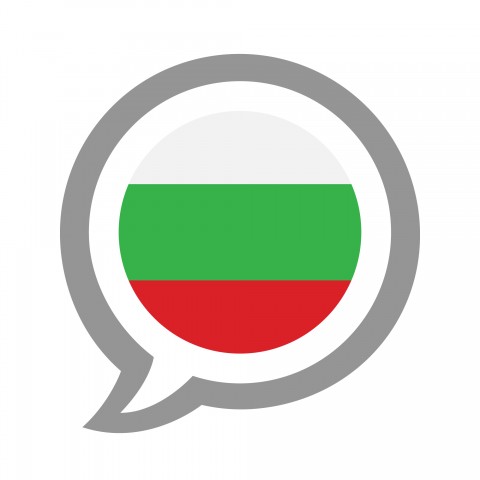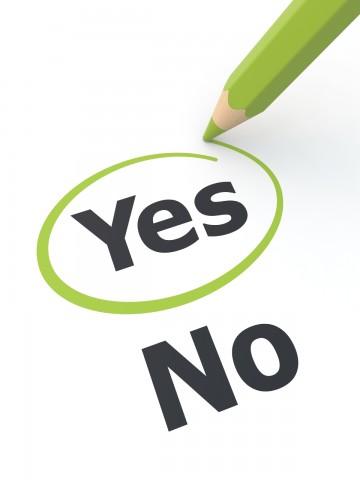
Many foreign language learners give up as soon as they reach the grammar. Learning grammar seems like Mission: Impossible to them!
But guess what? Thanks to BulgarianPod101, you can now learn all of the Bulgarian grammar basics in a fun and easy-to-understand way. We think that the most challenging part of your language learning journey should also be the most fun and intriguing!
On this page, you’ll find a breakdown of the most important Bulgarian grammar rules. We’ll cover topics ranging from word order to tenses, providing you with insight and examples to make your learning experience as painless as possible. Make sure to complete each of the Bulgarian grammar exercises we’ve included, as they will help you better understand the rules and how to apply them.
 Table of Contents
Table of Contents
- General Rules
- Vocabulary
- Special Grammar Point 1: Gender
- Special Grammar Point 2: Number
- Special Grammar Point 3: Definite Articles
- Special Grammar Point 4: Case
- Special Grammar Point 5: Tenses
- How BulgarianPod101 Can Help You Learn More Bulgarian
- Answers to the Practical Bulgarian Grammar Exercises
1. General Rules
Before we move on to the heavy stuff, let’s go over a couple of basic Bulgarian grammar points every learner should be familiar with: word order and vocabulary.
Word Order
Let’s start with word order and how to properly build Bulgarian sentences. We have good news for you: Bulgarian word order is flexible, so you have fewer chances to make a mistake! The rather free word order of Bulgarian is possible thanks to subject-verb agreement. Take the following example:
- Той (S) видя (V) момичето (O) в далечината (A).
Toy vidya momicheto v dalechinata.
“He saw the girl in the distance.”
So the pattern of this sentence is:
S (Subject) + V (Verb) + O (Object) + A (Adjunct)
Now, let’s try to change the word order of the same sentence and see what the possible options are.
- В далечината той видя момичето.
V dalechinata toy vidya momicheto.
“In the distance, he saw the girl.”
A + S + V + O
- Момичето той видя в далечината.
Momicheto toy vidya v dalechinata.
“The girl he saw in the distance.”
O + S + V + A
- Той видя в далечината момичето.
Toy vidya v dalechinata momicheto.
“He saw in the distance the girl.”
S + V + A + O
You can find more insight on this topic in our Bulgarian word order article!
Practical Bulgarian Grammar Exercises: Word Order

Do you like puzzle games? The following word order task is very similar to completing a puzzle, so why not try it?
We’ll give you a sentence with its pattern explanation. Your task is to change the order of the words in that sentence according to the patterns we list.
If you can’t wait till the end to check whether your answers are correct, you can scroll directly to the bottom of this page and find the answers under the appropriate heading.
Here’s your exercise:
- Ана (S) занесе (V) цветя (O) на майка си (A).
Ana zanese tsvetya na mayka si.
“Anna brought flowers to her mother.”
The pattern of the sentence above is:
S + V + O + A
Now, try to change the order of the sentence to follow each of these patterns:
S + V + A + O
O + V + S + A
A + S + V + O
Done? Great!
Now, try to translate the following sentence into Bulgarian:
- I study the Bulgarian language from a textbook.
After you’re done, change the word order to match these English equivalents:
- From a textbook I study the Bulgarian language.
- The Bulgarian language I study from a textbook.
- I study from a textbook the Bulgarian language.
When you’re ready, try to make a scheme for each Bulgarian sentence, the same way they’re done above. The answers can be found at the very end of this article.
2. Vocabulary
Another crucial element of Bulgarian grammar for beginners to learn early is the vocabulary. Here, we’ll briefly look at the different parts of speech.
| Parts of Speech | Bulgarian | English |
| Nouns | жена (zhena) | woman |
| Adjectives | красив (krasiv) | beautiful |
| Verbs | вървя (varvya) | to go |
| Adverbs | бавно (bavno) | slowly |
| Pronouns: Personal | аз, ти, той, тя, то, ние, вие, те (az, ti, toy, tya, to, nie, vie, te) | I, you, he, she, it, we, you, they |
| Pronouns: Demonstrative | това (tova) | this |
| Pronouns: Possessive | мой, твой, негов, неин, негов, наш, ваш, техен (moy, tvoy, negov, nein, nash, vash, tehen) | my, yours, his, her, its, our, yours, theirs |
| Conjunctions | и, но (i, no) | and, but |
| Prepositions | в, над, зад, пред, под, между (v, nad, zad, pred, pod, mezhdu) | in, over, behind, before, under, between |
Now, let’s try to make Bulgarian sentences using the words from the table above.

Adjective + Noun
красива жена
krasiva zhena
“beautiful woman”
Noun + Verb + Adjective
Жената е красива.
Zhenata e krasiva.
“The woman is beautiful.”
Noun + Verb + Adverb
Жената върви бавно.
Zhenata varvi bavno.
“The woman walks slowly.”
Adjective + Noun + Verb + Adverb
Красивата жена върви бавно.
Krasivata zhena varvi bavno.
“The beautiful woman walks slowly.”
Demonstrative Pronoun + Verb + Possessive Pronoun + Noun
Това е моята жена.
Tova e moyata zhena.
“This is my wife.”
Personal Pronoun + Verb + Adjective + Noun
Аз съм красива жена.
Az sam krasiva zhena.
“I am a beautiful woman.”
Adjective + Noun + Verb + Adverb + Preposition + Noun
Красивата жена върви бавно в парка.
Krasivata zhena varvi bavno v parka.
“The beautiful woman walks slowly in the park.”
- → Are you struggling to memorize vocabulary? See BulgarianPod101’s lesson How Do You Remember Bulgarian Words? for some great suggestions on how to improve your memorization!
Practical Bulgarian Grammar Exercises: Vocabulary
Now, it’s your turn to practice. First, study this table.
| Parts of Speech | Bulgarian | English |
| Nouns | мъж (mazh) | man |
| Adjectives | умен (umen) | smart |
| Verbs | работя (rabotya) | to work |
| Adverbs | бързо (barzo) | quickly |
| Pronouns: Personal | аз, ти, той, тя, то, ние, вие, те (az, ti, toy, tya, to, nie, vie, te) | I, you, he, she, it, we, you, they |
| Pronouns: Demonstrative | този [for masculine] (tozi) | this |
| Pronouns: Possessive | мой, твой, негов, неин, негов, наш, ваш, техен (moy, tvoy, negov, nein, nash, vash, tehen) | mine, yours, his, her, its, ours, yours, theirs |
| Conjunctions | и, но (i, no) | and, but |
| Prepositions | в, над, зад, пред, под, между (v, nad, zad, pred, pod, mezhdu) | in, over, behind, before, under, between |
Now, write the following phrases and sentences in Bulgarian:
Adjective + Noun
smart man
Noun + Verb + Adjective
The man is smart.
Noun + Verb + Adverb
The man works quickly.
Adjective + Noun + Verb + Adverb
The smart man works quickly.
Demonstrative Pronoun + Noun + Verb + Possessive Pronoun
This man is mine.
Personal Pronouns + Verb + Adjective + Noun
You are a smart man.
3. Special Grammar Point 1: Gender
Like many languages, Bulgarian has three grammatical genders: masculine, feminine, and neuter. A word’s gender can often be determined by its ending.
1. Nouns of masculine gender typically end in a consonant
Examples:
- ➢ мъж (mаzh) – man
➢ син (sin) – son
➢ стол (stol) – chair
➢ кон (kon) – horse
2. Nouns of feminine gender typically have the endings -а/-я
Examples:
- ➢ жена (zhena) – woman
➢ ябълка (yabalka) – apple
➢ кола (kola) – car
➢ чиния (chiniya) – plate
3. Nouns of neuter gender typically have the endings -е/-о
Examples:
- ➢ море (more) – sea
➢ поле (pole) – field
➢ месо (meso) – meat
➢ село (selo) – village
There are some exceptions for each grammatical gender that you should take into account. These are:
Exceptions for the masculine gender
Some common nouns of masculine gender may have the endings -а or -я.
- ➢ баща (bashta) – father
➢ старшина (starshina) – sergeant-major
➢ съдия (sadiya) – judge
Other nouns of masculine gender may have the ending -о (when they refer to close relatives) or -и (when they refer to months of the year).
- ➢ чичо (chicho) – uncle
➢ дядо (dyado) – grandpa
➢ януари (yanuari) – January
➢ февруари (fevruari) – February
You can learn more of these words in our article on How To Talk About Family in Bulgarian and our vocabulary list for Talking About Months in Bulgarian!
Exceptions for the feminine gender
Some common nouns of feminine gender may have the endings -ст or -есен.
- ➢ младост (mladost) – youth
➢ радост (radost) – joy
➢ песен (pesen) – song
➢ есен (esen) – autumn
Some common nouns of feminine gender may end in a consonant.
- ➢ любов (lyubov) – love
➢ нощ (nosht) – night
➢ смрад (smrad) – stink
Exceptions for the neuter gender
Some common nouns of neuter gender may end in -и, -у, or -ю. Usually, these words have a foreign origin.
- ➢ такси (taksi) – taxi
➢ жури (zhuri) – jury
➢ бижу (bizhu) – jewel
Practical Bulgarian Grammar Exercises: Genders
Now, try to categorize the following words into the table below based on their gender:
крак, младост, воля, корен, море, селище, колело, кожа, кино, мрак, мравка, такси, март, нощ, чичо, корона, слънце, януари, бижу, корен, майка, баща, обица, бюро
| Masculine gender | Feminine gender | Neuter gender |
| . | . | . |
| . | . | . |
| . | . | . |
| . | . | . |
| . | . | . |
| . | . | . |
| . | . | . |
| . | . | . |
4. Special Grammar Point 2: Number
Bulgarian language grammar recognizes nouns as being either singular or plural.
It’s interesting to note that Old Bulgarian also had the so-called dual number, which ended in -a. It was used for referring to a pair of things. Today, it’s still used for countable nouns of masculine gender, but only for inanimate objects. Animated objects end in -и when in their countable forms. Here are a few examples:
| Singular | Countable Noun Form | Plural |
| стол stol “a chair” | пет стола pet stola “five chairs” | много столове mnogo stolove “many chairs” |
| домат domat “a tomato” | два домата dva domata “two tomatoes” | много домати mnogo domati “many tomatoes” |
Let’s now look at the endings for plural and singular nouns for each gender:
| Singular | Plural | |
| Masculine gender Samples: | -consonant студент (student) – student кон (kon) – horse стол (stol) – chair | -и, -е, ове студенти (studenti) – student sконе (kone) – horses столове (stolove) – chairs |
| Feminine gender Samples: | -а, -я, -ст, -есен вода (voda) – water чиния (chiniya) – plate радост (radost) – joy песен (pesen) – song | -и води (vodi) – waters чинии (chiniyi) – plates радости (radosti) – joys песни (pesni) – songs |
| Neuter gender Samples: | -о, -е, -и, -у, -ю село (selo) – village море (more) – sea такси (taxi) – taxi бижу (bizhu) – jewel | -а, -та села (sela) – villages морета (moreta) – seas таксита (taxita) – taxies бижута (bizhuta) – jewelry |
Practical Bulgarian Grammar Exercises: Number

Try to make the plural form of the following nouns:
майка –
баща –
кино –
такси –
мравка –
обица –
слънце –
корен –
кожа –
море –
*Tip: If you find it difficult, you can refer to the previous exercise to see the gender of these nouns first. You can also check the correct answers at the end of this page.
5. Special Grammar Point 3: Definite Articles
In contrast to English and other languages where the definite article is written in front of the word, the definite article in Bulgarian is postfixed and looks like this:
| Indefinite | Definite | |
| Masculine gender Samples: | студент (student) – student кон (kon) – horse | Definite article: –ът, -ят студентът (studentat) – the student конят (konyat) – the horse |
| Feminine gender Samples: | вода (voda) – water чиния (chiniya) – plate радост (radost) – joy | Definite article: –та водата (vodata) – the water чинията (chiniyata) – the plate радостта (radostta) – the joy |
| Neuter gender Samples: | село (selo) – village море (more) – sea такси (taxi) – taxi | -тo селото (sela) – the village морето (moreta) – the sea таксито (taxita) – the taxi |
Note that the definite article for plural nouns is -те for masculine and feminine, and -та for neuter gender.
Practical Bulgarian Grammar Exercises: Definite Articles
Let’s return to our list from the previous section and try to add a definite article to each word. Please note that although баща (bashta), or “father,” is masculine, we add the feminine definite article to it because of its -a ending.
майка –
баща –
кино –
такси –
мравка –
обица –
слънце –
корен –
кожа –
море –
Once you complete the task above, make a summary of what you’ve learned so far by filling in the following table. The first row is filled out for you as an example.
*Tip: Determine the correct definite articles by looking at your answers from Practical Bulgarian Grammar Exercises: Number where you made the list of singular words plural.
| Singular | Singular- Definite | Plural | Plural – Definite |
| майка | майката | майки | майките |
| баща | |||
| кино | |||
| такси | |||
| мравка | |||
| обица | |||
| слънце | |||
| корен | |||
| кожа | |||
| море |
6. Special Grammar Point 4: Case
In Bulgarian grammar, cases are used only for personal nouns. There are three cases:
- Nominative – аз, ти, той, тя, то, ние, вие, те
- Accusative – ме, те, го, я, го, ни, ми, ги
- Dative – ми, ти, му, й, му, ни, ви, им
Here’s a table with translations to make things clearer:
| Nominative | Accusative | Dative |
| аз – I | ме – me | ми – to me |
| ти – you | тe – you | ти – to you |
| той – he | го – him | му – to him |
| тя – she | я – her | й – to her |
| то – it | го – it | му – to it |
| ние – we | ни – us | ни – to us |
| вие – you | ви – you | ви – to you |
| те – they | ги – them | им – to them |
Examples:
- Аз го попитах как се чувства. (го – Accusative)
Az go popitah kak se chuvstva.
“I asked him how he was feeling.”
- Аз му дадох моята книга. (му – Dative)
Az mu dadoh moyata kniga.
“I gave my book to him.”
Practical Bulgarian Grammar Exercises: Case
Use the table and examples above to translate the following sentences into Bulgarian:
- He asked her how he was feeling. (Accusative)
- She gave my book to me. (Dative)
- We asked them how they were feeling. (Accusative)
- They gave the book to us. (Dative)
7. Special Grammar Point 5: Tenses
The toughest part of Bulgarian grammar is related to the tenses. There are nine main tenses, but the most used ones are present tense, future tense, past aorist tense, and past imperfect tense.
Let’s see all nine tenses in a table:
| Bulgarian Tenses | Example | Translation |
| Present tense | Аз уча български. Az ucha balgarski. | “I study Bulgarian.” |
| Future tense | Аз ще уча български. Az shte ucha balgarski. | “I will study Bulgarian.” |
| Past aorist tense | Аз учих български. Az uchih balgarski. | “I studied Bulgarian.” |
| Past imperfect tense | Аз учех български. Az ucheh balgarski. | “I was studying Bulgarian.” |
| Past future tense | Аз щях да уча български. Az shtyah da ucha balgarski. | “I was going to study Bulgarian.” |
| Present perfect tense | Аз съм учил български. Az sam uchil balgarski. | “I have studied Bulgarian.” |
| Past perfect tense | Аз бях учил български. Az byah uchil balgarski. | “I had studied Bulgarian.” |
| Future perfect tense | Аз ще съм учил български. Az shte sam uchil balgarski. | “I will have studied Bulgarian.” |
| Past future perfect tense | Аз щях да съм учил български. Az shtyah da sam uchil balgarski. | “I would have studied Bulgarian.” |

Practical Bulgarian Grammar Exercises: Tenses
Now, let’s practice tenses! Think of it as a game. Just take the table above and change the verb уча (ucha), or “study,” with ходя (hodya), meaning “go.”
| Bulgarian Tenses | Example | Translation |
| Present tense | Аз ходя в парка. Az hodya в parka. | “I walk in the park.” |
| Future tense | “I will walk in the park.” | |
| Past aorist tense | “I walked in the park.” | |
| Past imperfect tense | “I was walking in the park.” | |
| Past future tense | “I was going to walk in the park.” | |
| Present perfect tense | “I have walked in the park.” | |
| Past perfect tense | “I had walked in the park.” | |
| Future perfect tense | “I will have walked in the park.” | |
| Past future perfect tense | “I would have walked in the park.” |
8. How BulgarianPod101 Can Help You Learn More Bulgarian
BulgarianPod101 prepared this extensive guide to the basic Bulgarian grammar rules to help you more easily get used to this foreign language. We hope that you found our overview helpful and have successfully completed all of the practical exercises. However, if you still have any questions or concerns about a topic we covered, don’t hesitate to reach out to us. We’ll get back to you as soon as possible!
Do you feel ready to learn Bulgarian grammar in more detail?
We provide a range of learning tools and materials for learners at every level. From free vocabulary lists to audio and video lessons, there’s something for everyone on BulgarianPod101.com.
You can also choose your own Bulgarian teacher from MyTeacher when you sign up for a Premium PLUS account. Your teacher will help you successfully overcome all the grammar challenges you might encounter.
And now, let’s check your answers!
9. Answers to the Practical Bulgarian Grammar Exercises

Answers to: Practical Bulgarian Grammar Exercises: Word Order
- Ана занесе цветя на майка си.
Ana zanese tsvetya na mayka si.
“Anna brought flowers to her mother.”
S + V + O + A
Answers
S + V + A + O
Ана занесе на майка си цветя.
Ana zanese na mayka si tsvetya.
“Anna brought to her mother flowers.”
O + V + S + A
Цветя занесе Ана на майка си.
Tsvetya zanese Ana na mayka si.
“Flowers brought Anna to her mother.”
A + S + V + O
На майка си Ана занесе цветя.
Na mayka si Ana zanese tsvetya.
“To her mother Anna brought flowers.”
I study the Bulgarian language from a textbook.
Аз уча български език от учебник.
Az ucha balgarski ezik ot uchebnik.
S + V + O + A
From a textbook study I the Bulgarian language.
От учебник аз уча български език.
Ot uchebnik az ucha balgarski ezik.
A + S + V + O
The Bulgarian language I study from a textbook.
Български език аз уча от учебник.
Balgarski ezik az ucha ot uchebnik.
O + S + V + A
I study from a textbook the Bulgarian language.
Аз уча от учебник български език.
Az ucha ot uchebnik balgarski ezik.
S + V + A + O
Answers to: Practical Bulgarian Grammar Exercises: Vocabulary
Adjective + Noun
smart man
умен мъж
umen mazh
Noun + Verb + Adjective
The man is smart.
Мъжът е умен.
Mazhat e umen.
Noun + Verb + Adverb
The man works quickly.
Мъжът работи бързо.
Mazhat raboti barzo.
Adjective + Noun + Verb + Adverb
The smart man works quickly.
Умният мъж работи бързо.
Umniyat mаzh raboti barzo.
Demonstrative Pronoun + Noun + Verb + Possessive Pronoun
This man is mine.
Този мъж е мой.
Tozi mazh e moy.
Personal Pronouns + Verb + Adjective + Noun
You are a smart man.
Ти си умен мъж.
Ti si umen mazh.









